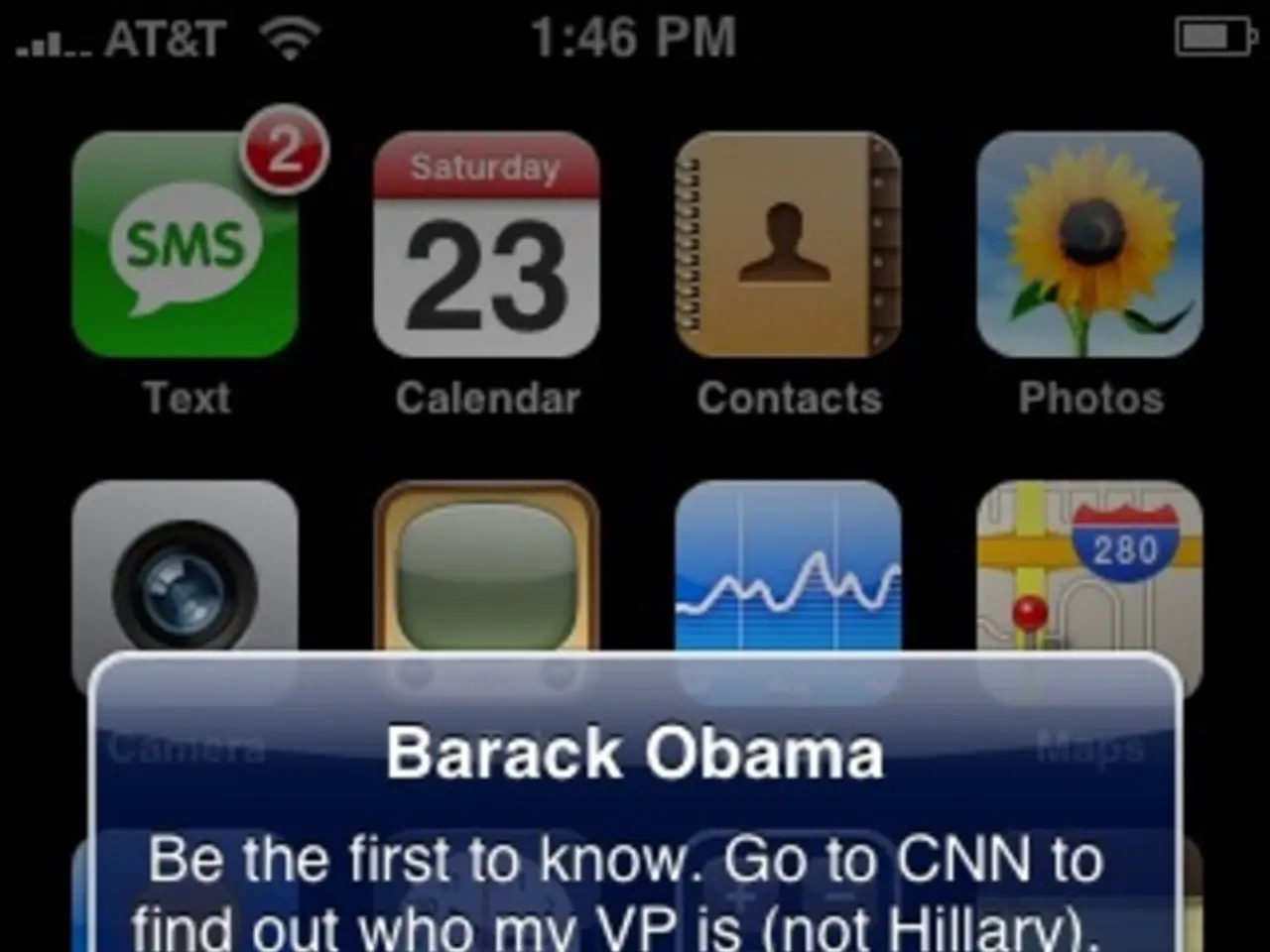Signal Denies Claims of an Unpatched Vulnerability (Zero-Day Bug)
In the past week, the infosec community has been abuzz with rumors of a potential zero-day vulnerability in Signal, the widely trusted privacy app. However, after a thorough investigation, Signal has found no evidence to substantiate these claims.
The rumors, which gained traction quickly, were allegedly coming from people who worked for the federal government, adding legitimacy to the claims. This incident serves as a stark reminder of the vulnerability of the infosec community to disinformation attacks.
Meredith Whittaker, Signal's president, issued an explicit refutation, stating that there is no evidence that the report is real. One supposed mitigation technique for the alleged bug was to turn off Signal's links preview feature. Signal has expressed interest in any evidence that the vulnerability is real and has provided an email address for individuals with relevant information to contact them at [[email protected]].
Cooper Quinton, a researcher with the Electronic Frontier Foundation, expressed criticism towards the hysteria that led to the Signal zero-day vulnerability claims going viral. The commercial surveillance industry, known to target widely used messaging platforms for potential security weaknesses, reportedly employs for-hire hackers who search for such vulnerabilities. If a Signal zero-day vulnerability existed, it would likely be worth a significant amount of money due to Signal's status as a widely trusted privacy app. An entire zero-day market for messengers exists, and such vulnerabilities are worth as much as $8 million to the right buyer.
It's important to note that there is no recent evidence or credible reports of a zero-day vulnerability specifically in the Signal chat app. The app itself has not been mentioned in recent discussions about zero-day vulnerabilities or active exploitation attempts. However, there have been discussions about the limitations of using consumer apps like Signal for secure communications, particularly in environments requiring strict security controls and compliance.
A separate issue involves the TeleMessage SGNL app, a Signal clone, which has faced exploitation attempts due to a vulnerability (CVE-2025-48927) that exposes sensitive data if certain Spring Boot configurations are not properly secured. This highlights the importance of ensuring that any communication app, especially those used in sensitive environments, is properly secured and maintained.
In summary, while the rumors of a zero-day vulnerability in Signal have been debunked, it serves as a reminder for the importance of verifying information before spreading it. Any concerns about security should focus on ensuring that the app is used appropriately and securely, especially in contexts requiring advanced security features.
- Despite claims about a potential zero-day vulnerability in Signal, there is currently no evidence to support these allegations, as stated by the app's president, Meredith Whittaker.
- The Electronic Frontier Foundation's researcher, Cooper Quinton, criticized the hysteria surrounding the Signal zero-day vulnerability claims, highlighting that the commercial surveillance industry might exploit such vulnerabilities for financial gain.
- On a separate note, the TeleMessage SGNL app, a Signal clone, has faced exploitation attempts due to an identified vulnerability (CVE-2025-48927), underscoring the importance of securing and maintaining all communication apps, particularly those used in sensitive environments.




